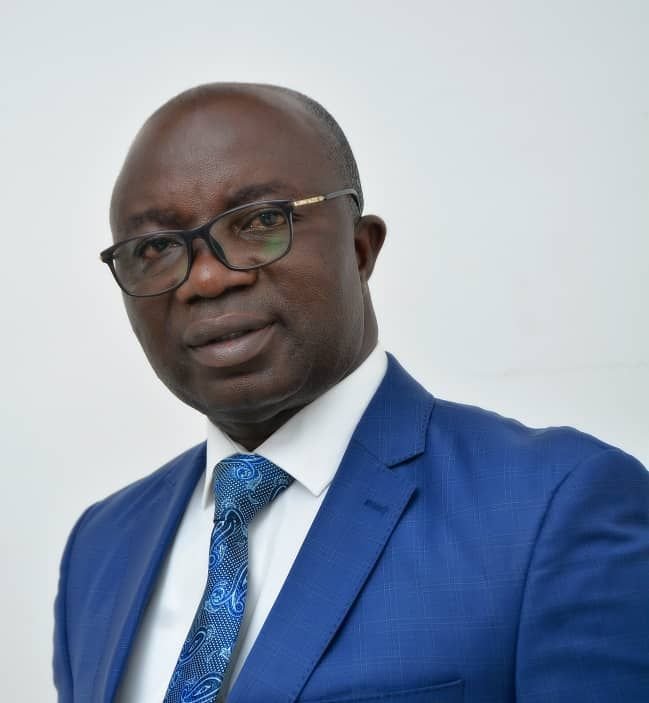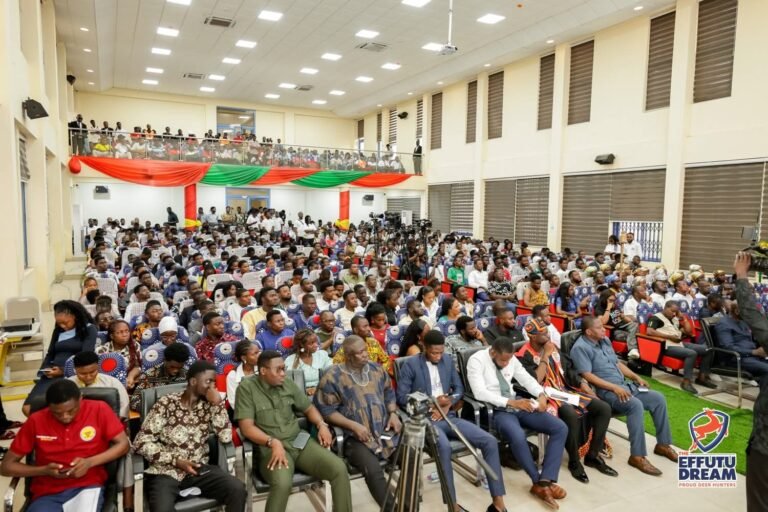
Osei Assibey Antwi, NSS Executive Director

The Director of Corporate Affairs at the National Service Scheme (NSS), Armstrong Essah, has observed that the NSS pedagogy module, launched in 2022, is progressively contributing to equipping service personnel with advanced teaching methods and educational techniques.
In a statement, Mr. Essah said the module “is reimagining teacher training and shaping futures.” He stressed that the module was empowering NSPs to become more effective educators, thereby positively influencing the quality of education across the country.
“This initiative, spearheaded by the Executive Director of the NSS, Hon. Osei Assibey Antwi, in collaboration with the National Teaching Council (NTC), Transforming Teaching, Education, and Learning (T-TEL), and the Principals of Colleges of Education (PRINCOF), aims to bridge the gap between untrained and qualified teachers,” he noted.
“The programme’s primary goal is to equip the NSPs entering classrooms for their mandatory one-year service with basic teaching skills to foster effective learning environments in schools, particularly in deprived and hard-to-reach communities,” it explained.
Addressing teacher gap
The statement highlighted that over the decades, the NSS had played a pivotal role in addressing the pupil-teacher ratio gap by deploying over 40% of service personnel to basic and Senior High Schools annually.
It noted that recognising the need for formal training, the NSS had introduced this pedagogy module to ensure that service personnel without prior educational training can still deliver high-quality education. According to the statement, these personnel not only impart knowledge but also serve as role models within their communities.
“In 2022, the programme’s launch saw 300 National Service Personnel (NSPs) trained and deployed to senior high schools. The following year, 2023, the initiative expanded significantly, with 1,934 NSPs undergoing rigorous pedagogy training to enhance their teaching skills for their national service,” the statement indicated.
Expansion plans
Mr Essah said the NSS intended to broaden the scope of the Pedagogy Programme to include more personnel deployed in basic and senior high schools, particularly targeting those who lack teaching skills.
It stated that “leveraging the increased cooperation from our partners, the Scheme is poised to deploy close to 5,000 service personnel to bolster teaching and learning activities in senior high schools”.
The statement revealed that the groundwork for the third phase of this crucial programme had already been laid, setting the stage for a successful commencement. It also disclosed that there was a concerted effort to develop NSPs’ capacity in Universal Design for Learning (UDL), enabling them to cater to all learners, including those with special needs.
“This is particularly crucial in rural areas where the pupil-teacher ratio gap remains significant. Furthermore, the NSS aims to facilitate the enrolment of NSPs interested in pursuing a career in teaching in postgraduate education programmes through partnerships with colleges of education and other institutions,” the statement indicated.
Professionalism, compliance
The statement stressed that the NSS pedagogy training aligned with the Education Regulatory Bodies Act 1023 of 2020, which mandates the NTC to regulate the teaching profession. This includes professionalising teaching through standards development, continuous professional development, and licensing.
“The training ensures that NSPs comply with these standards, promoting a culture of continuous learning and professional growth. The training module includes a two-week initial intensive training before service commencement and intermittent training throughout the one-year period, providing NSPs with year-long hands-on practice and theoretical knowledge essential for effective teaching,” it explained.
He indicated in the statement that upon completing the training, NSPs are awarded temporary licenses, allowing them to teach in secondary schools. This temporary licensure, he said, was a stepping stone towards obtaining a full professional license, provided they pass the teacher licensure exams.




